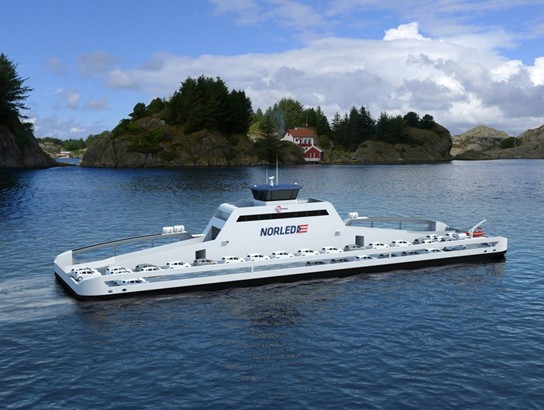Introduction to developments within the maritime industry
The maritime industry, which has traditionally relied on fossil fuels, is currently undergoing radical changes due to the rise of electrification. This transition to electric propulsion is essential in the fight against climate change and reducing the ecological footprint of shipping.
Technological Innovations
One of the main drivers behind electrification is advances in technology. The development of powerful batteries, such as lithium-ion technology, makes it possible to power ships more efficiently. In addition, innovations such as fuel cells and hydrogen technology are also beginning to break through in the sector. These technologies offer an alternative to traditional fuels and are crucial in the transition to a more sustainable future. In addition to batteries and fuel cells, hybrid solutions are also emerging. Hybrid ships combine a combustion engine with an electric drive, leading to a significant reduction in fuel consumption and emissions. These types of applications are already proving effective on domestic routes, where the frequency of stops and charging is easy to integrate.

MF Ampere: World’s first electric ferry in Norway
Battery Energy Storage Systems
Battery Energy Storage Systems (BESS) are increasingly being used in the maritime sector, particularly in the context of sustainability and efficiency. The most suitable types of ships and boats for BESS are generally those with predictable sailing routes, frequent stops or a need for emission-free operations. Here are the main categories:
- Ferries and passenger ships
- Inland waterway vessels
- Tugboats and harbour operations vessels
- Yachts and recreational boats
- Offshore support vessels
- Research vessels and patrol vessels
- Fishing vessels
Advantages of BESS in ships:
- Emissions reduction: CO₂, NOₓ, SOₓ and particulate matter are significantly reduced.
- Fuel savings: Up to 25% less fuel consumption.
- Lower maintenance costs: Fewer operating hours for diesel engines.
- Improved performance: Faster response, better manoeuvrability.
- Flexibility: Different operating modes (electric, hybrid, power boost).
- Energy efficiency: Optimisation of generator load, peak load compensation, spinning reserve.
For further information, please refer to the sections below.
2. Electrically powered systems in the maritime industry
3. Standards and guidelines
4. Electric ship propulsion
5. Testing electric ship propulsion